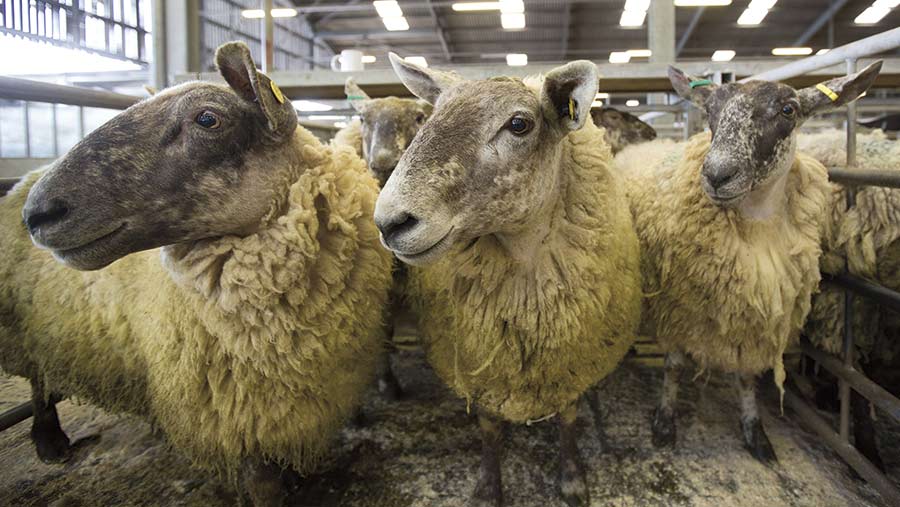Slaughter figures suggest cull ewes are returning to farms
 © Tim Scrivener
© Tim Scrivener Live mart cull ewe throughputs are up this year, but Defra slaughter figures are back, leading analysts to suspect more cull ewes are returning to farms.
Data up to 25 May shows 696,309 cull sheep have been sold through the live ring, compared with 673,492 last year, a year-on-year increase of 3.3%.
However, Defra slaughter figures are 0.7% down to the end of April, with AHDB red meat analyst Rebecca Oborne suggesting sheep are being bought by farmers for feeding or breeding.
A difficult lambing period across Britain could have left a potential shortage of replacement ewes, forcing producers to buy sheep now, including some from the cull market.
Auctioneers are reporting a tremendous trade for cull sheep, with prices £5-£10 a head up on the year and numbers now beginning to tighten nationally into the summer.
See also: Q&A: Managing soil pH and lime deficiencies
Newark
Cull ewe trade was £20 a head up on the year at Newark on Saturday (2 June), where James Sealy and Keith Miller of Newark Livestock Sales say tight national supply is keeping trade dear. Numbers were up 5% on the week and trade lifted £2.71/kg.
Mr Sealy is starting to see numbers become tight and has seen some bidders, particularly when hoggs were dear earlier in the year, buy sheep for feeding.
Last year, more than 1,000 sheep levelled at £77.39, while this year 752 ewes made £99.47, of which 363 were farm assured and made £101.85.
He said good-condition lowland sheep have been making £80-£100 a head at the better end. Premiums for Texel- and Charolais-crosses have been seen at £100+ and pure continentals have been topping the mart at £140-£150.
Gaerwen, Anglesey
Gaerwen’s cull ewe averages for 2018 so far (4 June) are £6-£7 dearer on the year at £65, despite an extra 2,000 more sheep through the ring.
Throughputs of 700-800 ewes a week are being reported by auctioneer Simon Jones, director at Morgan Evans and Co, which is currently in its busiest time for selling cull ewes.
“After Ramadan and into midsummer we will start seeing the mountain sheep coming in, but not for a few more weeks,” Mr Jones says. “We usually have a quiet time in July and August, while May and June are the busiest times.”
Leyburn
Numbers have tightened over the past fortnight at Leyburn, where mart manager Stephen Walker is seeing about 100 ewes a week on Wednesday sales.
Mr Walker is “cautiously optimistic” about trade staying strong for Leyburn’s busiest cull ewe period in September and October (400 head a week).
The last two sales (23 and 30 May) saw Mules sell to £105 and £112, respectively, averaging £92 and £79. Continental ewes sold to £144 and £127 and averaged £97 and Swaledales to £81 and £79 and averaged £55 and £57.
“Conditions have improved greatly and generally people are able to feed and look after sheep better than ever,” says Mr Walker. “There’s been very little drop in quality, even during lambing,when things were difficult.”
